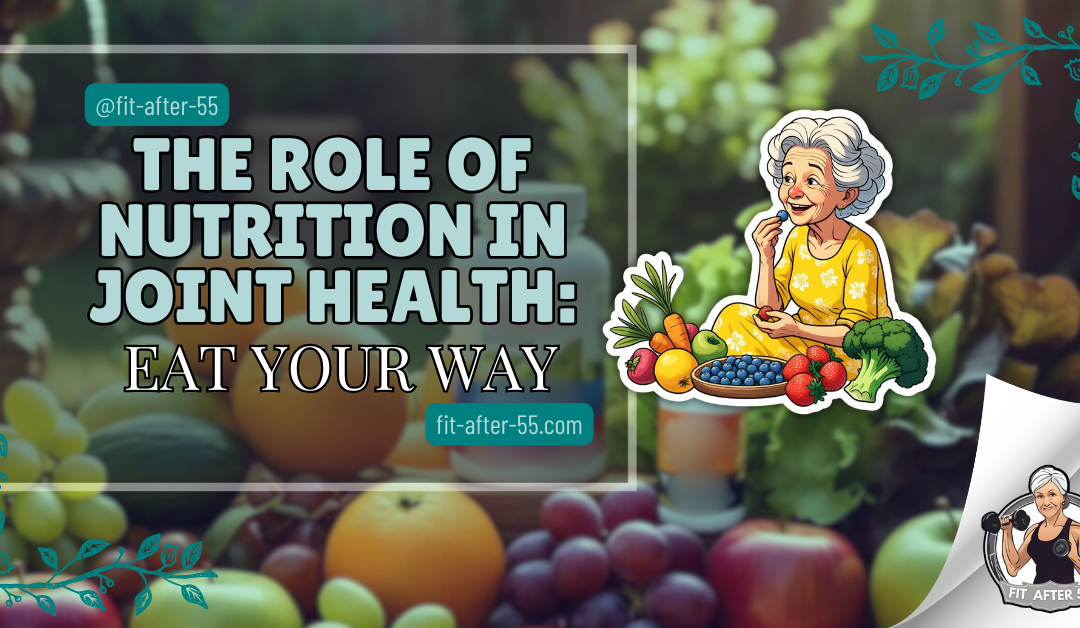The role of nutrition in joint health is something we might not think about daily, but it’s incredibly important, especially for seniors. Joints are the unsung heroes of our bodies, letting us move freely, stay active, and enjoy a good quality of life. I’ve come to appreciate this even more after dealing with some joint issues myself. Several factors contributed to the discomfort, and I realized that my diet played a bigger role than I had expected. After doing some research and making changes, I noticed a difference and thought it was worth sharing these findings with you. If you’ve ever wondered how your food choices could impact your joint health, keep reading—there’s a lot to uncover!
The Role Of Nutrition In Joint Health: Eat Your Way to Pain-Free Movement
Joint health is a big deal for many people. I know from my own experience how much it can affect daily life. What we eat plays a key role in keeping our joints happy and healthy. Good nutrition can help reduce joint pain, lower inflammation, and even slow down the wear and tear on our joints.

I’ve learned that certain foods can be great for joint health. Things like fatty fish, colorful fruits and veggies, and nuts are all good choices. On the flip side, some foods might make joint problems worse. It’s not just about what we eat though – staying at a healthy weight is super important too.
As we age, taking care of our joints becomes even more crucial. The good news is that making smart food choices can make a big difference. It’s amazing how much impact our diet can have on how our joints feel and function.

Key Takeaways
- A balanced diet rich in anti-inflammatory foods can help reduce joint pain and stiffness
- Maintaining a healthy weight through proper nutrition lessens stress on joints
- Certain supplements may support joint health, but should be used alongside a nutritious diet
Fundamentals of Joint Health
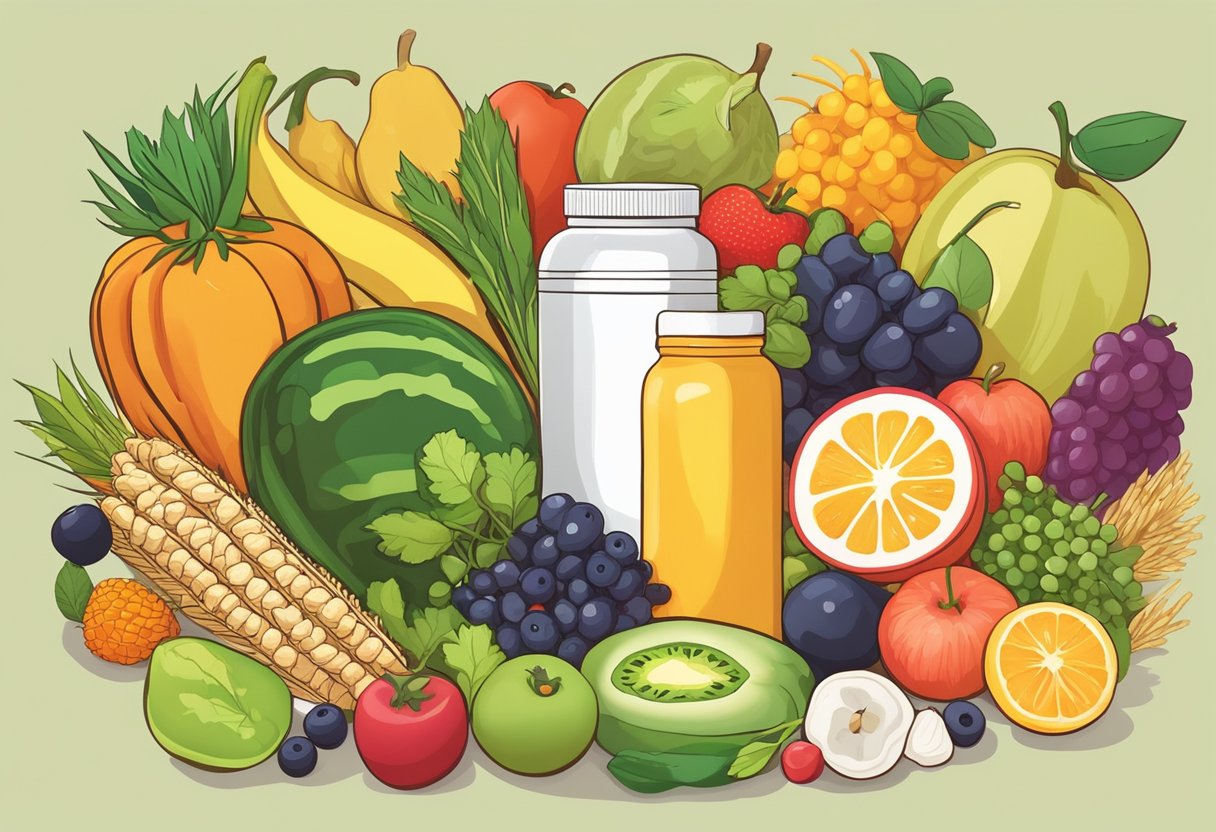
Joints are crucial for movement and flexibility in our bodies. They face many challenges as we age and use them over time. Let’s look at how joints work and some common issues that can affect them.
Understanding Joints and Their Function
Joints are where two or more bones meet. They allow us to bend, twist, and move in different ways. I can’t stress enough how important cartilage is for joint health. It’s the smooth tissue that covers the ends of bones in a joint. Cartilage acts like a cushion, helping bones glide past each other easily.
Joints also have a fluid called synovial fluid. This fluid helps reduce friction when we move. It’s like oil in a car engine, keeping everything running smoothly.
Collagen is another key player in joint health. It’s a protein that gives structure to our cartilage and other tissues. As we age, our bodies make less collagen, which can affect our joint flexibility.
Common Joint-Related Conditions
Arthritis is a big concern for joint health. There are different types, but the most common are osteoarthritis and rheumatoid arthritis.
Osteoarthritis happens when cartilage wears down over time. This can cause pain and stiffness in the joints. It’s often called “wear and tear” arthritis.
Rheumatoid arthritis is different. It’s when our immune system attacks our joints by mistake. This can cause swelling, pain, and joint damage.
Joint injuries can also lead to problems. Things like sprains or tears can weaken joints and make them more likely to develop arthritis later on.

Nutrition’s Impact on Joint Health
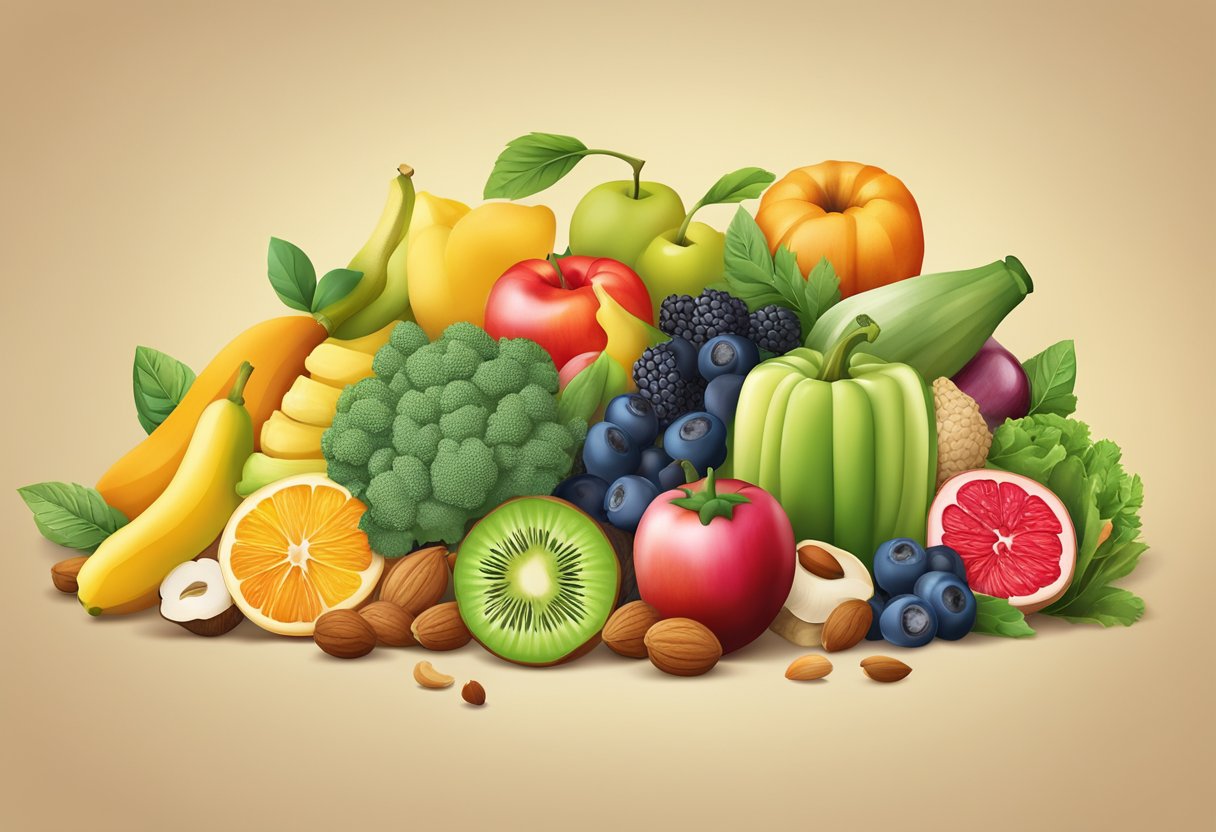
I’ve found that what we eat can really affect how our joints feel and work. Good nutrition gives our joints what they need to stay healthy and move smoothly. Let’s look at some key nutrients and how our diet connects to joint pain.
Essential Nutrients for Joint Support
I always make sure to get enough calcium and vitamin D. These work together to keep my bones strong, which helps support my joints. Vitamin C is crucial for making collagen, the main protein in cartilage. I try to eat lots of fruits and veggies to get my vitamin C.
Protein is super important too. It gives my body the building blocks for healthy cartilage and other joint tissues. I like to include lean meats, fish, and beans in my meals.
Omega-3 fatty acids are my go-to for fighting joint inflammation. I eat fatty fish like salmon a couple times a week. Nuts and seeds are great sources too.
Interplay Between Diet and Joint Pain
I’ve noticed that what I eat can really affect how my joints feel. Certain foods can increase inflammation in my body, which often leads to more joint pain. I try to avoid sugary and fried foods as much as I can.
On the flip side, I’ve found that eating lots of colorful fruits and veggies helps reduce inflammation. These foods are packed with antioxidants that protect my joints.
I also make sure to stay hydrated. Drinking enough water keeps my joints lubricated and helps flush out toxins that might cause inflammation.
Some people I know take glucosamine and chondroitin supplements. While the results can vary, some find they help with joint pain.

Dietary Choices for Optimal Joint Health
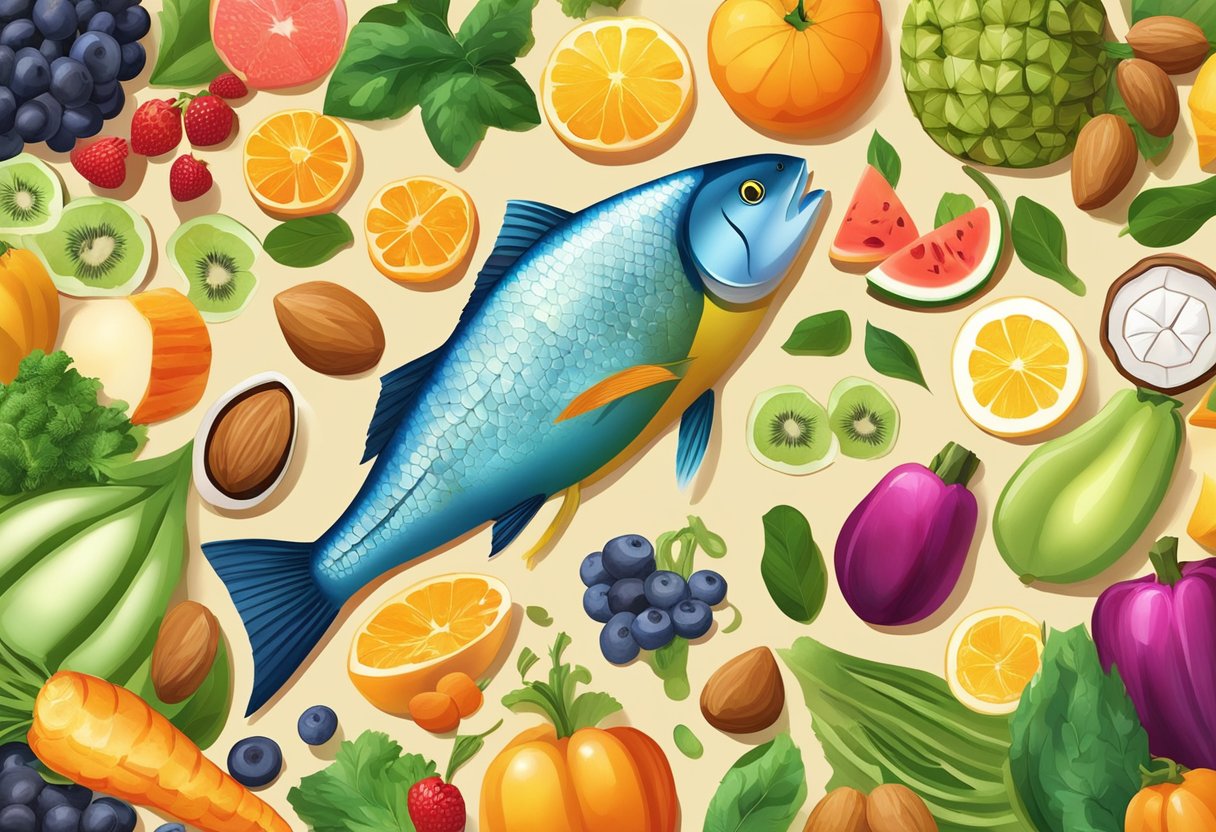
I’ve found that what we eat can make a big difference for our joints. A diet rich in certain foods can help reduce inflammation and keep our joints healthy. On the flip side, some foods may worsen joint problems.
Incorporating Anti-Inflammatory Foods
I love adding colorful fruits and veggies to my meals. Berries, leafy greens, and nuts are packed with antioxidants that fight inflammation. I try to eat fatty fish like salmon twice a week for those omega-3s.
Beans and whole grains are great too. They give me fiber and nutrients that support joint health. I sprinkle turmeric on my food when I can – it’s known to help with inflammation.
Here’s a quick list of joint-friendly foods I include: • Berries (blueberries, strawberries) • Leafy greens (spinach, kale) • Nuts and seeds • Fatty fish (salmon, mackerel) • Beans and lentils • Whole grains • Turmeric and ginger
Avoiding Foods That Exacerbate Joint Issues
I’ve learned to stay away from certain foods that can make my joints feel worse. Processed foods, sugary snacks, and too much red meat can increase inflammation in my body.
I limit alcohol and avoid sodas and other sugary drinks. These can lead to weight gain, which puts extra stress on my joints.
Foods I try to avoid or limit: • Processed snacks and fast food • Sugary desserts and drinks • Excessive red meat • Alcohol • Foods high in saturated fats
By making these dietary changes, I’ve noticed a real difference in how my joints feel. It’s all about balancing nutrition and choosing foods that nourish and protect my body.
Strategies for Joint Health Through Nutrition

I’ve found some great ways to support joint health through diet. Let’s look at how to build a balanced meal plan and why staying hydrated matters for our joints.
Creating a Balanced Diet for Joint Well-being
I always start with lean proteins like chicken or fish. They help repair and build strong tissues. I love adding nuts and seeds too – they’re packed with healthy fats and minerals.
Leafy greens are my go-to for vitamins and antioxidants. I toss kale or spinach into salads or smoothies. Citrus fruits give me a vitamin C boost, which is great for collagen production.
I use olive oil in my cooking. Its anti-inflammatory properties are perfect for joint health. Lentils are another staple in my diet. They’re full of fiber and protein.
For calcium, I include dairy products or fortified plant milks. Bone broth is also amazing – it’s got collagen and other joint-friendly compounds.
Role of Hydration and Its Impact on Joints
I can’t stress enough how important staying hydrated is for joint health. Water helps keep our cartilage soft and hydrated. It’s like oil for a squeaky hinge!
I aim for at least 8 glasses of water a day. Sometimes I add a slice of lemon for flavor and extra nutrients. Herbal teas count too, and they can have anti-inflammatory benefits.
When I exercise, I make sure to drink extra water. Sweating can lead to dehydration, which isn’t good for our joints.
I’ve noticed that when I’m well-hydrated, my joints feel more flexible. It’s easier to move and less uncomfortable. Plus, good hydration helps flush out toxins that might contribute to joint inflammation.
Supplementation and Joint Health

I’ve found some great supplements that can help keep our joints strong and healthy. Let’s look at key vitamins, minerals, and natural options that support joint function.
Vitamins and Minerals for Strong Joints
I always make sure to get enough calcium for my bones and joints. Vitamin D helps my body absorb calcium better. I take vitamin C to help make collagen, which is important for cartilage.
Magnesium and phosphorus are minerals I include for bone health. Zinc helps form new cartilage. I get these from foods, but sometimes I use supplements too.
Antioxidants like vitamin E protect my joints from damage. I eat lots of colorful fruits and veggies. If needed, I’ll take an antioxidant supplement.
Here’s a quick list of key nutrients for joints: • Calcium • Vitamin D • Vitamin C • Magnesium • Phosphorus • Zinc • Vitamin E

Natural Supplements for Joint Support
I’ve tried some natural supplements that seem to help my joints feel better. Glucosamine and chondroitin are popular choices. They may reduce joint pain and slow cartilage breakdown.
Omega-3 fish oil is great for fighting inflammation in my joints. I take it daily. Turmeric and ginger are two of my favorite natural anti-inflammatories. I add them to foods or take as supplements.
Some other joint-friendly supplements I’ve tried: • Collagen • MSM (methylsulfonylmethane) • Boswellia
I always check with my doctor before starting new supplements. It’s important to find the right mix that works for my body and health needs.
Lifestyle Considerations for Healthy Joints

I believe taking care of our joints goes beyond just what we eat. Let’s look at some key lifestyle factors that can make a big difference for our joint health.
The Significance of Exercise and Weight Management
Exercise is super important for keeping my joints healthy. I try to do a mix of activities that are easy on my joints but still give me a good workout. Swimming and cycling are great low-impact options I enjoy. These help keep my muscles strong, which supports my joints.
I also know that maintaining a healthy weight is crucial. Extra pounds put more stress on my joints, especially my knees and hips. By staying active and watching what I eat, I can keep my weight in check and reduce strain on my joints.
Strength training is another key part of my routine. It helps build the muscles around my joints, giving them better support. I aim for 2-3 sessions a week, focusing on exercises that target major muscle groups.

Role of Gut Health in Joint Wellness
I’ve learned that my gut health plays a surprising role in my joint health too. The bacteria in my gut can affect inflammation in my body, including in my joints.
To support my gut health, I eat lots of fiber-rich foods like fruits, veggies, and whole grains. These feed the good bacteria in my gut. I also include fermented foods like yogurt and kefir in my diet to boost my gut microbiome.
Avoiding processed foods and excess sugar helps too. These can upset the balance of bacteria in my gut. Instead, I focus on whole, nutrient-rich foods that support both my gut and joint health.
Special Considerations for Joint Health
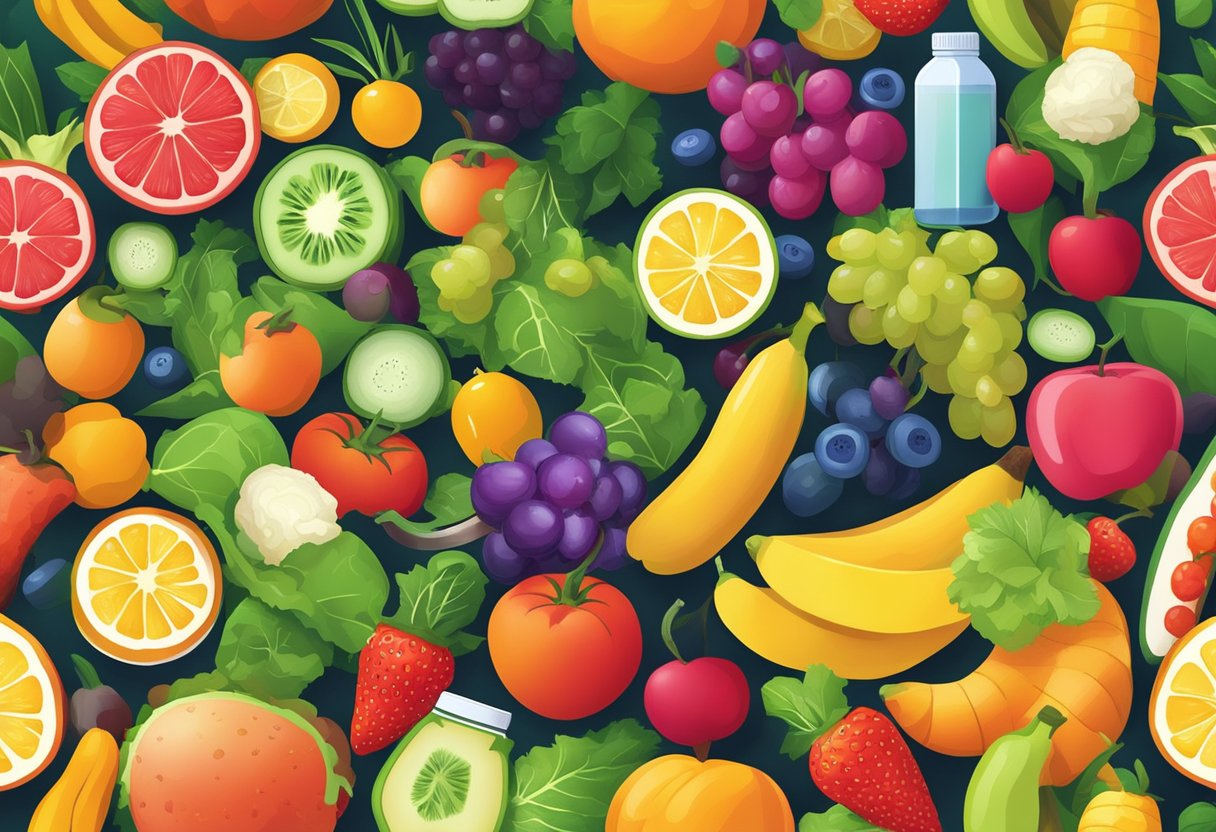
Joint health needs change as we age and for those who are very active. Good nutrition can help keep joints working well for different groups of people.
Joint Support for Aging Populations
As I get older, my joints need extra care. Osteoarthritis becomes more common with age, so I focus on foods that fight inflammation. I eat lots of fish high in omega-3 PUFAs, like salmon and sardines. These fats help reduce joint swelling.
I also make sure to get enough vitamin C from fruits and veggies. This nutrient helps make collagen, which keeps my joints strong. Leafy greens are great for vitamin K, another key nutrient for joint health.
Calcium and vitamin D are important too. I drink milk and eat yogurt to keep my bones strong. This takes pressure off my joints. Weight control is crucial, so I watch my portions and stay active.
Nutritional Recommendations for Athletes
As an athlete, I put a lot of stress on my joints. Proper nutrition is key for keeping them healthy. I make sure to eat enough protein to help repair and build tissue.
I focus on anti-inflammatory foods like berries, nuts, and olive oil. These help reduce the wear and tear on my joints from intense workouts.
Staying hydrated is super important. I drink plenty of water throughout the day to keep my joints lubricated.
I also take a glucosamine supplement. Some studies show it might help protect cartilage. Turmeric is another supplement I consider for its anti-inflammatory effects.

Wrapping Up: The Role of Nutrition in Joint Health
We’ve explored how nutrition plays a key role in maintaining joint health, especially for seniors who rely on strong, flexible joints for staying active and independent. From understanding the impact of what we eat to how it supports the intricate mechanisms of our joints, we’ve covered a lot. Thank you for taking the time to go through everything!

Do you struggle with joint issues too? If so, I wish you the best as you work on improving your nutrition and supporting your joints. Here’s to healthier, happier movement ahead!
Frequently Asked Questions
Diet plays a big role in joint health. Certain foods and nutrients can help or hurt our joints. I’ll answer some common questions about nutrition and joints.

How does diet affect joint health?
Nutrition is crucial for keeping joints healthy. What we eat can reduce inflammation in our joints. Some foods help build and repair joint tissues. Others might make joint problems worse.
Can poor nutrition lead to joint pain or arthritis?
Poor eating habits can make joint issues more likely. Not getting enough key nutrients may weaken joints over time. Eating too much of certain foods could increase inflammation and pain.
What foods should I eat to support healthy joints?
Fatty fish is great for joint health. It has omega-3s that fight inflammation. Colorful fruits and veggies are also good choices. They’re packed with antioxidants that protect joints.
Are there any specific nutrients that promote joint strength?
Protein is really important for strong joints. It helps build collagen, which makes up a lot of our joint tissues. Calcium and vitamin D are key for bone health too.
Is there a link between obesity and joint issues?
Yes, extra weight puts more stress on joints. This can lead to faster wear and tear. Losing weight often helps reduce joint pain and lower the risk of problems.
How can I adjust my diet to reduce inflammation in my joints?
I suggest eating more anti-inflammatory foods. These include olive oil, nuts, and leafy greens. Cutting back on sugar, processed foods, and red meat can also help lower inflammation.
Stay Active, Stay Informed!
Looking for more tips and inspiration to support your joint health and overall fitness? Visit our official site for engaging content and in-depth product reviews. Connect with a vibrant, supportive community on our Facebook page and take the next step in your fitness journey.

